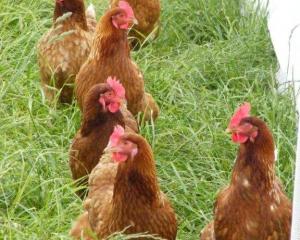
Seed Library Community Project co-ordinator Sandra Campbell, a dairy farmer in Clifton, about 20km west of Balclutha, said prisoners at Otago Corrections Facility in Milburn built 20 seed library cupboards for installation in rural communities across Otago and Southland.
A seed library was a place where the community could put seeds and take seeds at no cost.
"To help people to get growing," Mrs Campbell said.
The aim of seed libraries was to build community, improve local biodiversity, support endangered pollinators and promote community wellness through gardening.
The cupboards had been given to schools and community gardening groups to paint in bright colours and fill with seeds, she said.
"Flower, vegetable, native — any seeds for the community to use."
She would use the libraries to distribute some of her spare, locally sourced native seeds, which were suitable for riparian planting.
The building materials for the cupboards were provided by PGG Wrightson Seeds.
"I rang them on a whim to see if they would help and they paid for all the materials, which was appreciated."
The boxes could not have been built without help from the Department of Corrections, Mrs Campbell said.
“The Corrections staff are amazing; they knew how to set things up to make it as easy as possible to turn a project into a reality."
Facility instructor Mike Booth said two men had been building their carpentry skills and supporting the community by building the seed libraries.
The men had put their joinery skills to the test, he said.
"A project like this teaches skills such as reading and drawing, planning and accounting for materials, measuring and cutting and planning and constructing."
Both men took full ownership of the project, and had the benefit and satisfaction of seeing the project through from start to finish, Mr Booth said.
As part of the prison’s carpentry industry training, the project had helped them obtain their level 2 and level 3 Building, Construction and Allied Trades Skills.
"Helping people gain skills to improve their employability reduces their likelihood of reoffending, which in turn helps keep our communities safe."















